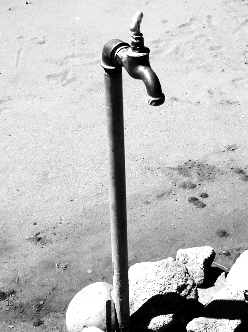Water plan drained
 The Northern Territory government has halved the groundwater available for extraction in the Western Davenport region.
The Northern Territory government has halved the groundwater available for extraction in the Western Davenport region.
The NT’s new plan reduces availability by over 70,000 megalitres (ML) in response to community concerns.
This significant cut in water allocation comes amid ongoing debates over the balance between environmental sustainability and agricultural development.
The revised Western Davenport Water Allocation Plan (PDF), which covers the years 2024 to 2027, slashes the amount of water available for commercial extraction to 67,700ML annually - down from the 138,405ML allocated in the 2021-2022 plan.
This adjustment was made public just days before the government entered a caretaker period ahead of the Northern Territory election.
Environment Minister Kate Worden says that the reduction reflects the outcomes of extensive community consultations, including those with traditional owners.
The water plan will undergo a review after three years, but it is likely to have some immediate impacts.
The controversial 40,000ML licence granted to Singleton Station, which represents 86 per cent of the region's total commercial water allocation, remains under scrutiny.
Singleton Station, operated by Fortune Agribusiness, requires environmental approval before it can begin using its licence for a planned 3,500-hectare horticultural project.
This substantial reduction in available groundwater has sparked criticism, particularly from the NT Farmers Association, which says that development is being sidelined in favour of addressing public concerns.
The cutbacks also impact the water set aside for Aboriginal economic development, with allocations to this sector being reduced by approximately 8,000ML per year.
This has raised concerns about the implications for Indigenous communities and their ability to access water for economic purposes.
Environmental groups, including the Arid Lands Environment Centre (ALEC), have criticised the new plan for still allowing what they see as excessive water extraction.
ALEC’s CEO, Adrian Tomlinson, argued that the Singleton Station licence, which now accounts for the majority of the region's industrial water use, is “catastrophic” for local ecosystems.
“This licence will also damage ecosystems at a vast scale,” Tomlinson warned.
While the Northern Territory government has committed to honouring existing water licences, the over-allocation of resources has left little room for future development or expansion of Aboriginal water reserves.
As environmental and community groups continue to push for stricter controls, the debate over how to balance the needs of agriculture, industry, and the environment in this arid region is far from over.








 Print
Print